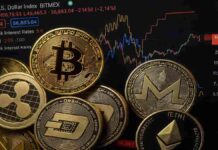Global News Update
In the fast-paced world of global finance and geopolitics, recent developments have captured the attention of investors and policymakers alike.
US
The looming threat of a government shutdown in the United States has raised concerns among economists and investors about its potential impact on the economy. Historically, government shutdowns have had minimal effect on markets and economic performance, but experts warn that this time could be different. The Labor Department has announced that it will not release critical employment data if the government shuts down, creating a data blackout that could obscure economic trends.
President Donald Trump is at the center of the political storm, having recently threatened mass firings of federal workers if Congress fails to avert the shutdown. In a related development, Trump is also facing scrutiny over new tariffs on various goods, including a 10% tariff on softwood timber and a 25% levy on kitchen cabinets and vanities, aimed at boosting domestic manufacturing . This move is expected to impact U.S.-Canada trade relations significantly, given that Canada is the largest supplier of timber to the United States.
In the corporate sector, Electronic Arts (EA) has been acquired in a landmark deal valued at $55 billion, marking one of the largest leveraged buyouts in history. This acquisition has reignited discussions about the future of mergers and acquisitions in the tech space, with analysts speculating on which companies might be next on the chopping block.
In the realm of cryptocurrency, Bitcoin has shown signs of recovery, rising to approximately $114,000 after experiencing significant volatility in previous weeks. The digital asset market continues to evolve, with institutional investors increasingly navigating the complexities of cryptocurrency ownership and regulation.
EUROPE
European markets are facing a mixed landscape as economic indicators signal both growth and challenges. Spain has recently received a boost in credit ratings from Moody’s and Fitch, reflecting its improving economic outlook. The country’s growth has been attributed to foreign investment and immigration, positioning Spain as a leader among its regional peers.
In the political arena, the recent elections in Moldova have resulted in a victory for the pro-European party, signaling a shift away from Russian influence and closer ties with the West. This election is viewed as a critical referendum on Moldova’s future direction and its aspirations for EU membership.
Meanwhile, the UK is grappling with economic challenges as the finance minister remains tight-lipped about potential tax hikes ahead of the Autumn Budget. The uncertainty surrounding fiscal policy is contributing to a cautious sentiment among investors.
ASIA
Asia’s economic landscape is currently characterized by a mix of optimism and caution. China’s manufacturing sector has shown signs of improvement, with the official Purchasing Managers’ Index (PMI) indicating a slight uptick, although it still reflects contraction. The challenges of tepid domestic demand and the impact of U.S. tariffs continue to weigh heavily on the sector.
In Japan, the Bank of Japan faces increasing pressure to raise interest rates amid weak economic data, including declining industrial output and retail sales. This has raised concerns about the central bank’s ability to balance growth and inflation effectively.
Moreover, the Philippines is experiencing a downturn in its stock market, primarily driven by corruption allegations against government officials that have eroded investor confidence. The peso has also weakened amid these developments, prompting calls for reform.
On the geopolitical front, tensions in the region are palpable as North Korea’s Kim Jong Un seeks to modernize its military capabilities with assistance from Russia. This development raises concerns about the potential for escalation in military tensions in Northeast Asia.
In summary, the global landscape remains dynamic, with significant developments in the U.S., Europe, and Asia that will continue to influence economic and political trajectories. As markets react to these unfolding events, stakeholders must navigate the complexities of international finance, trade, and diplomacy.





